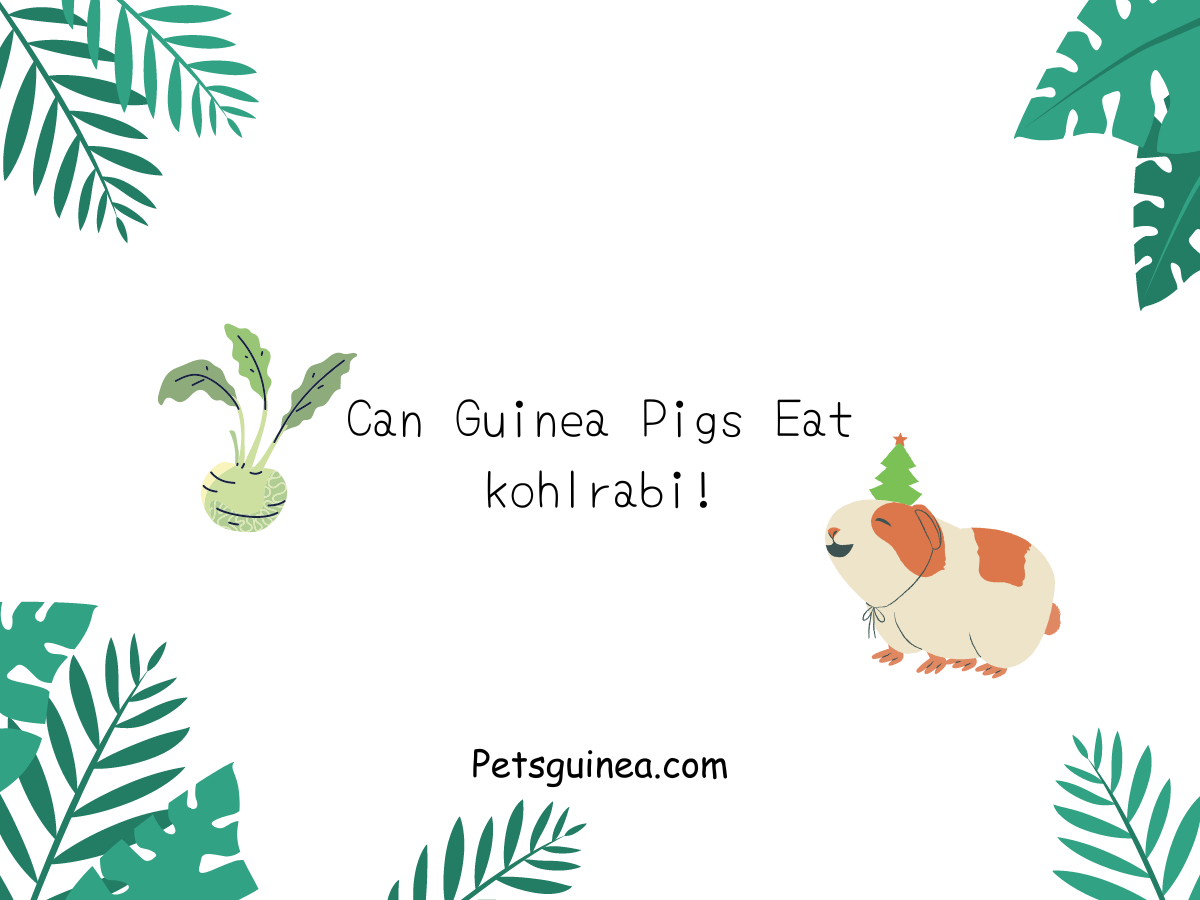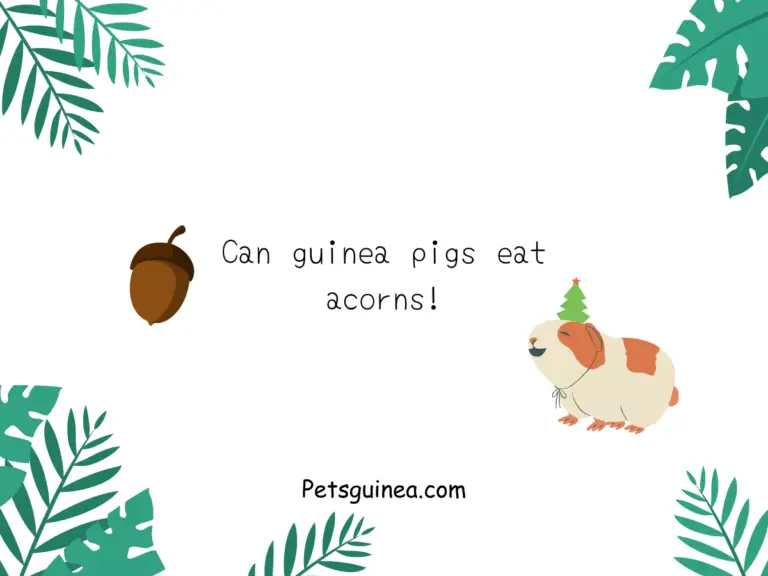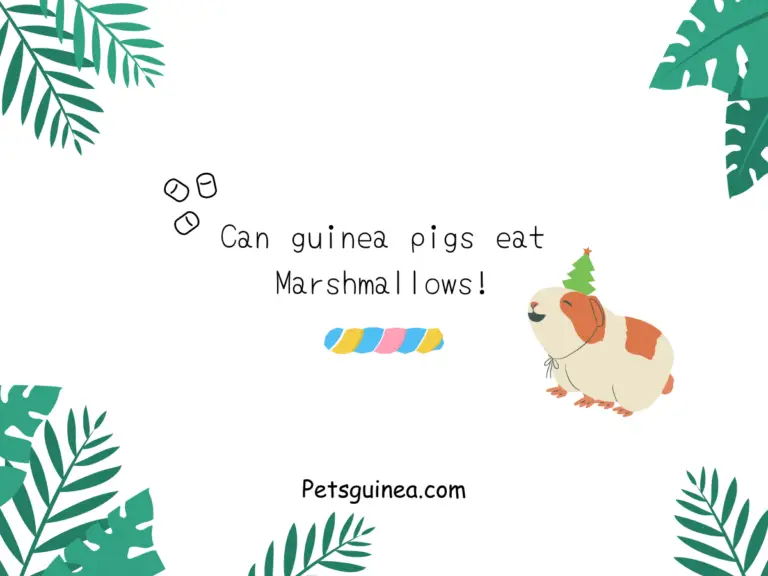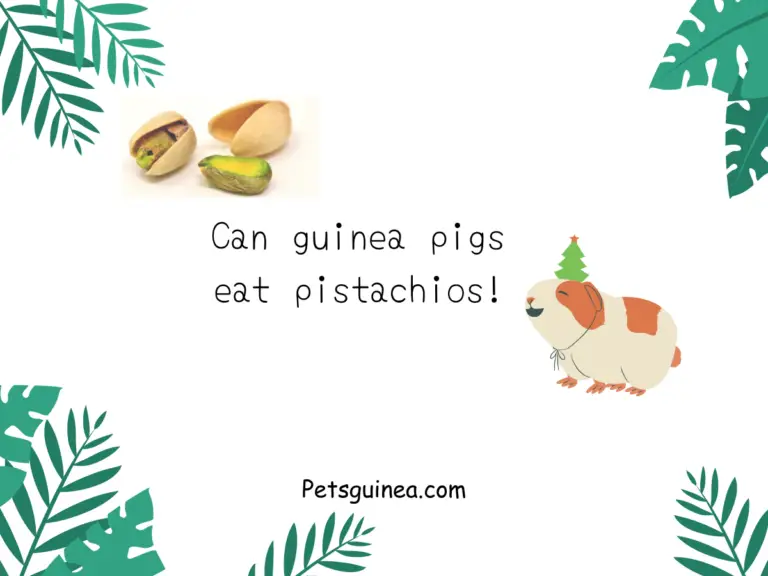Can Guinea Pigs Eat Kohlrabi?
Welcome to our comprehensive exploration of whether guinea pigs can eat kohlrabi. As a dedicated zoologist researcher, I’ve investigated the nutritional aspects of this intriguing vegetable, its potential benefits and risks for our beloved guinea pigs, and served recommendations for it. Let’s embark on this journey to understand the intricacies of incorporating kohlrabi into our pets’ diets.
Quick Facts About Kohlrabi
Before we delve into the specifics, let’s acquaint ourselves with some fundamental information about kohlrabi:
Botanical Classification:
Kohlrabi (Brassica oleracea var. gongylodes) belongs to the Brassica family, which includes cabbage, broccoli, and kale.
Appearance:
Resembling a turnip, kohlrabi features a bulbous stem with protruding stalks and leaves.
Nutrient Profile:
This cruciferous vegetable boasts a rich nutritional profile, abundant in vitamins, minerals, and dietary fiber.
Culinary Uses:
Kohlrabi can be consumed raw or cooked, adding a crunchy texture and subtle, cabbage-like flavor.
Is Kohlrabi Good for Guinea Pigs? | Health Benefits
Guinea pigs, like humans, require a diverse diet to thrive, comprising hay, fresh vegetables, and pellets. Let’s explore the potential health benefits of introducing kohlrabi into their feeding regimen:
Vitamin C:
Kohlrabi is an excellent source of vitamin C, a vital nutrient for guinea pigs, as they cannot synthesize it internally. Adequate vitamin C intake is crucial for maintaining health and preventing scurvy.
Dietary Fiber:
The fiber content in kohlrabi promotes healthy digestion by facilitating regular bowel movements and preventing gastrointestinal issues such as constipation.
Hydration:
With its high water content, kohlrabi contributes to the hydration needs of guinea pigs, supporting proper kidney function and overall hydration status.
Nutritional Benefits of Kohlrabi for Guinea Pigs
Let’s delve deeper into the nutritional composition of kohlrabi and its potential contributions to guinea pigs’ well-being:
Vitamins:
Besides vitamin C, kohlrabi contains other essential vitamins, including vitamin K, which play a crucial role in blood clotting and bone health. Moreover, it provides B vitamins such as folate and vitamin B6, which are involved in various metabolic processes.
Minerals:
Kohlrabi is a good source of minerals like potassium, manganese, and calcium, essential for maintaining electrolyte balance, supporting bone health, and facilitating muscle function.
Antioxidants:
Phytochemicals such as Glucosinolates and flavonoids in kohlrabi confers antioxidant properties, protecting guinea pigs’ cells from oxidative damage and reducing the risk of chronic diseases.
Risks and Considerations When Feeding Kohlrabi to Guinea Pigs
Despite its potential benefits, it’s essential to be aware of the possible risks and considerations associated with feeding kohlrabi to guinea pigs:
Oxalic Acid Content:
Kohlrabi contains oxalic acid, a naturally occurring compound that can inhibit calcium absorption and contribute to the formation of urinary tract stones in susceptible individuals. While the oxalic acid content in kohlrabi is relatively low compared to other leafy greens, moderation is key to minimizing potential risks.
Digestive Issues:
Introducing new foods, including kohlrabi, into a guinea pig’s diet should be done gradually to prevent digestive upset. Sudden dietary changes can lead to diarrhea, bloating, or other gastrointestinal disturbances.
Can Kohlrabi Be Bad for Guinea Pigs? | Possible Risks
While kohlrabi can be a nutritious addition to a guinea pig’s diet when offered in moderation, it’s essential to be mindful of potential adverse effects:
Allergies and Sensitivities:
Some guinea pigs may be allergic or sensitive to certain vegetables, including kohlrabi. Signs of an adverse reaction may include itching, swelling, or gastrointestinal discomfort. If your guinea pig exhibits any concerning symptoms, discontinue feeding kohlrabi and consult a veterinarian.
Pesticide Exposure:
When feeding fresh produce to guinea pigs, ensure it’s thoroughly washed to remove any pesticide residue. Guinea pigs are sensitive creatures, and pesticide exposure can have adverse health effects.
Serving Size, Frequency, and Preparation of Kohlrabi for Guinea Pigs
Now that we’ve discussed the potential benefits and risks let’s explore the optimal serving size, frequency, and preparation methods for feeding kohlrabi to guinea pigs:
Serving Size:
Offer small, bite-sized pieces of kohlrabi as part of a balanced diet, alongside other fresh vegetables and hay. Avoid providing excessive amounts of kohlrabi to prevent overconsumption and potential digestive issues.
Frequency:
While kohlrabi can be included in a guinea pig’s diet, it should be in moderation. Limit feeding to a few times weekly to ensure dietary variety without overwhelming their digestive system.
Preparation:
Before serving, thoroughly wash the kohlrabi to remove any dirt, pesticides, or contaminants. Consider peeling the outer layer to eliminate any potential chemical residues. Ensure that the kohlrabi is fresh and free from signs of spoilage or decay.
How Often Can Guinea Pigs Eat Kohlrabi?
The frequency of feeding kohlrabi to guinea pigs depends on various factors, including their individual dietary preferences, overall health status, and digestive tolerance. As a general guideline, offer kohlrabi as an occasional treat, rather than a primary food source, to maintain dietary balance and prevent potential health issues.
What If My Guinea Pig Consumes Cooked Kohlrabi?
Guinea pigs should only consume fresh, raw vegetables as part of their diet. Cooking alters the nutritional composition of foods and may diminish their beneficial properties. Therefore, it’s essential to refrain from offering cooked kohlrabi to guinea pigs and instead focus on providing fresh, raw produce to support their nutritional needs.
How to Introduce Kohlrabi to Your Guinea Pig’s Diet
When introducing kohlrabi to your guinea pig’s diet, take a gradual approach to allow them to acclimate to the new food:
Start Small:
Begin by offering a small amount of kohlrabi alongside their usual diet to gauge their interest and tolerance.
Monitor Response:
Observe your guinea pig’s reaction to the kohlrabi, paying attention to any signs of enjoyment or discomfort. Adjust the serving size or frequency accordingly if they show reluctance or digestive issues.
Variety is Key:
Rotate different types of vegetables, including kohlrabi, to provide dietary variety and ensure they receive a wide range of nutrients.
Conclusion
In conclusion, kohlrabi can be a nutritious addition to a guinea pig’s diet when incorporated thoughtfully and in moderation. Its rich vitamin and mineral content and hydrating properties can improve their health and well-being. However, it’s essential to consider potential risks, such as oxalic acid content and digestive sensitivity, and to diligently monitor your guinea pig’s response to new foods. By following these guidelines and prioritizing your pet’s nutritional needs, you can provide them with a balanced and fulfilling diet that promotes optimal health and happiness.
FAQs:
Guinea pigs can enjoy kohlrabi as part of a balanced diet. However, it’s essential to offer it in moderation and ensure it’s fresh and pesticide-free.
Kohlrabi can be offered to guinea pigs a few times weekly as an occasional treat. It shouldn’t replace their staple diet of hay and pellets.
While peeling kohlrabi is not mandatory, it can help remove any potential pesticide residue and make it easier for guinea pigs to digest.
While kohlrabi is generally safe for guinea pigs, overconsumption may lead to digestive problems such as gas or bloating. It’s essential to monitor their intake and adjust accordingly.
Yes, there are several vegetables that guinea pigs can enjoy, including bell peppers, cucumbers, and leafy greens like romaine lettuce and spinach.
Lentil sprouts are not recommended as a regular component of a guinea pig’s diet due to potential digestive upset and choking hazards.
Yes, endive can be a safe and nutritious treat for guinea pigs when offered in moderation.
Signs of an allergic reaction in guinea pigs may include itching, swelling, or gastrointestinal distress. If you notice any adverse symptoms, discontinue feeding kohlrabi and consult a veterinarian.
Guinea pigs can eat kohlrabi leaves in addition to the bulb. However, ensure fresh leaves are thoroughly washed to remove dirt or contaminants.







